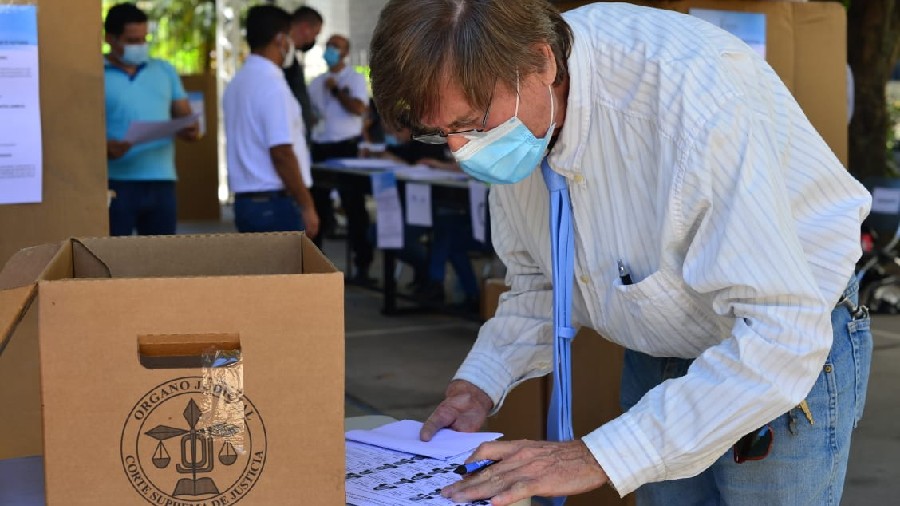
Lawyers Marlon Harold Cornejo Ávalos, Sandra Luz Chicas de Fuentes and Miguel Ángel Flores Durel (current defender of Ana Ligia de Saca) are among the most voted.
The Federation of Lawyers Associations of El Salvador (FEDAES) yesterday elected 15 of the 30 candidates for Supreme Court of Justice (CSJ) magistrates and members of the National Council of the Judiciary (CNJ).
The CSJ published a list with the most votes until 10:15 pm. However, only 10 of the 29 minutes were processed. The lawyers with the most votes at the time were Marlon Harold Cornejo Ávalos, Sandra Luz Chicas de Fuentes, Miguel Ángel Flores Durel, Óscar Antonio Canales and José Ernesto Clímaco Valiente.
It was until midnight that the CSJ finally published the list of elected representatives, below are the 15 candidates who received the most votes:
Marlon Harold Cornejo Avalos
Sandra Luz Girls of Fuentes
Miguel Angel Flores Durel
José Ernesto Climaco Valiente
Henry Alexander Mejia
Ivonne Lizzette Flores González
Oscar Antonio Canales Cisco
Jorge Alfonso Quinteros Hernandez
Raymundo Alirio Carballo Mejia
Martin Alexander Martinez Osorio
Bacilia del Carmen Portillo
Héctor Arnoldo Blaños Mejía
Jaime Mauricio Campos Pérez
Francisco Diaz Rodriguez
Nidia Oneyda Cáceres de Jimenez

This election is held every three years. The judges of the CSJ are elected by the General Assembly for a term of nine years, but are renewed every three years by a third.
The 14 national polling stations opened at 8 a.m. and closed at 5 p.m. without any logistical setbacks.
YOU MAY BE INTERESTED: Úrsula Indacochea: “The election of magistrates is as important as that of the president”
FEDAES electoral committee chairman Gilberto Canjura Velásquez said the elections went off without a hitch, apart from a few minor issues that were resolved early.
An hour after the close of the vote, the central zone headquarters still had an average and steady influx. Velásquez added that in the last election there were about 6,000 voters, this time they printed 13,000 ballots.
“We had 13,000 sheets of voting paper printed; it is always little because the community is around 30,000, but since the culture of the voter’s exercise, in this case of the lawyers, is still not well promoted. Before and during the elections, the FEDAES invited the country’s lawyers to vote. “We must become responsible for this, because the magistrates of the CSJ are from here.”
However, the Citizens for an Independent Court organization posted a series of photos on its Twitter account showing how some magistrate candidates asked to vote during the ballot despite being banned.
Likewise, there were requirements to avoid contamination to enter polling stations. Companions’ access was prohibited and every lawyer had to show his ID.
Sonia Margarita de Lizama, a lawyer in the judicial department for over 15 years, said the biosafety protocols were guaranteed by the FEDAES organization. He said he was going to vote because he expects “a change and transparency” in the next magistrate formation.
Likewise, Juan Ramírez, a private attorney since 2005, voted because he expects suitable officials and no political alliances. In this way, compliance with the laws is guaranteed and not with requests from political sectors, he said.
From this election and from the election convened by the National Council for the Judiciary (CNJ), a list will be obtained outlining the five magistrates who will form the CSJ after June 30 and their deputies will ultimately be elected.
POSSIBLY INTERESTED: Lawyers Ask For Partisan Independence In Election Of The Judges Of The CSJ